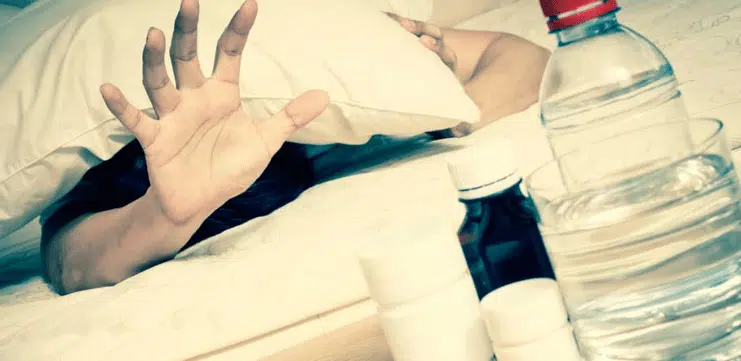
“Clonazepam: Klonopin” Stanford Medicine. Web. 5 Mar 2016.
Klonopin can bring about a variety of severe withdrawal symptoms. Due to its extremely addictive nature, the withdrawal symptoms of Klonopin can start very quickly, even if you’ve been prescribed the drug by a doctor. If you, or a loved one, has been abusing the drug without a proper prescription this only increases your chances of addiction.
Below we cover the most common symptoms and effects of Klonopin addiction, the phases of withdrawal you’re going to experience, and the treatment options you’ll have available.
What Is Klonopin?
Klonopin is a benzodiazepine commonly prescribed for conditions dealing with anxiety, seizures, or other debilitating or unusual muscle activity. Klonopin works by slowing down activity within the brain and throughout the body.
This Season, Give Yourself the Gift of a Fresh Start.
Whether you are struggling with addiction, mental health or both, our expert team is here to guide you every step of the way. Don’t wait— reach out today to take the first step toward taking control of your life.
Klonopin, or clonazepam, works by increasing the amount GABA in your brain, which will help to lower the electrical activity throughout. This helps to remedy conditions related to high levels of anxiety and stress.
Symptoms of Klonopin Addiction
Since Klonopin is so addictive it’s usually only prescribed for short durations lasting a couple weeks at the most. Once Klonopin is taken for a long period of time it can cause chemical changes throughout the brain. If you stop taking the drug, then the parts of the brain that have become dependent on the drug don’t function normally.
If you’ve been taking Klonopin to manage your anxiety, panic attacks, or another disorder, then these symptoms will only become magnified when not taking the drug.
Phases of Klonopin Withdrawal
Klonopin withdrawal can be a very uncomfortable experience, below we highlight the three phases of the withdrawal period.
1. Early Withdrawal
The first phase of the withdrawal starts once the drug has completely left the bloodstream. This will usually occur within two days after you’ve stopped taking the drug. During this phase, the conditions you’ve been using the drug to help treat will become much more extreme. That’s why it’s important to seek out a drug detox facility that can help you ease off the drug slowly, instead of going “cold turkey”.
2. Acute Withdrawal
The longest part of the withdrawal is the acute withdrawal phase. This can take anywhere from two weeks to three months. The number of withdrawal effects you’ll be experiencing will spend upon the severity of addiction and how dependent you are on Klonopin.
3. Post Withdrawal
Post-withdrawal doesn’t happen to everyone, but it can spring up from time to time for some people. These symptoms usually include the resurgence of depression and anxiety. During this phase it can be helpful to seek out treatment from a qualified professional in order to ease your transition into a sober life.
Klonopin Withdrawal Effects
The withdrawal process from Klonopin can be very dangerous and even life-threatening in some cases.
Some of the common physical side effects of Klonopin withdrawal include:
- Insomnia and trouble sleeping
- Dizziness
- Loss of coordination
- Seizures
- Overall fatigue
- Stomach pain and nausea
- Loss of vision
- Increased blood pressure and heart rate
- Muscle spasms
Some of the most common psychological effects of Klonopin include:
- Mental confusion
- Depression
- Anxiety
- Mood swings
- Short-term memory loss
- Anger and short temper
- General numbness
- Drug cravings
- Hallucinations
Treatment Options for Klonopin Addiction
People who are addicted to Klonopin need to be weaned off the drug through a detox in order to lessen the dangerous effects of Klonopin. Going to a qualified treatment center will help to make the process of detoxing more tolerable.
In some instances, Klonopin addiction and abuse is caused from an underlying or co-occurring condition. It’s important for this condition to be treated alongside the drug addiction in order for an effective treatment.
If you, or a loved one, has been suffering from Klonopin addiction get the treatment you require and reach out to our staff today.







